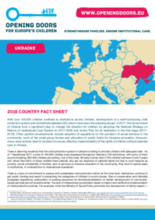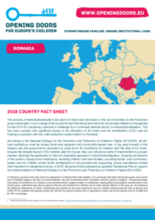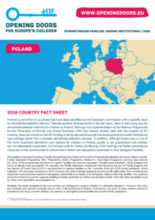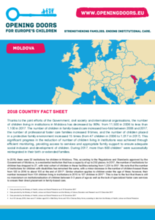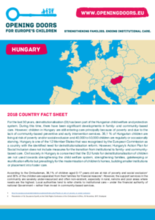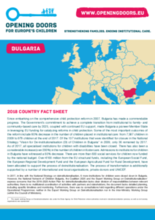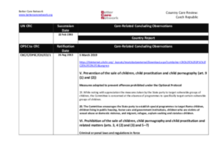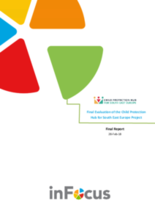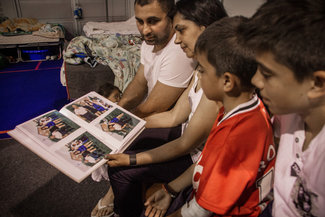

Displaying 581 - 590 of 1071
This factsheet highlights the developments and challenges still ahead in Ukraine and offers key recommendations to the EU and the national government to ensure that children are cared for in family-based settings.
This factsheet highlights the developments and challenges still ahead in Romania and offers key recommendations to the EU and the national government to ensure that children are cared for in family-based settings.
This factsheet highlights the developments and challenges still ahead in Poland and offers key recommendations to the EU and the national government to ensure that children are cared for in family-based settings.
This factsheet highlights the developments and challenges still ahead in Moldova and offers key recommendations to the EU and the national government to ensure that children are cared for in family-based settings.
This factsheet highlights the developments and challenges still ahead in Hungary and offers key recommendations to the EU and the national government to ensure that children are cared for in family-based settings.
This factsheet highlights the developments and challenges still ahead in Bulgaria and offers key recommendations to the EU and the national government to ensure that children are cared for in family-based settings.
The present study addressed institutionalised children and staff members' perspectives about bullying in Residential Care settings (RCs) in five European countries (Bulgaria, France, Greece, Italy and Romania.).
This country care review includes the care-related Concluding Observations adopted by the Committee on the Rights of the Child and the Committee on the Rights of Persons with Disabilities. The Committees' recommendations on the issues relevant to children's care are highlighted, as well as other care-related concluding observations, ratification dates, and links to the Universal Periodic Review and Hague Intercountry Adoption Country Profile.
This study draws upon data from the Bucharest Early Intervention Project (BEIP), a longitudinal study exploring the impact of severe psychosocial deprivation on child health and development to examine the relationship between telomere length and psychopathology.
The Child Protection Hub for South East Europe’s (ChildHub) overall objective is to contribute to the realisation of children’s fundamental rights across South East Europe, in particular the rights to be protected from abuse and violence. This report presents the findings of the final evaluation of this project.

